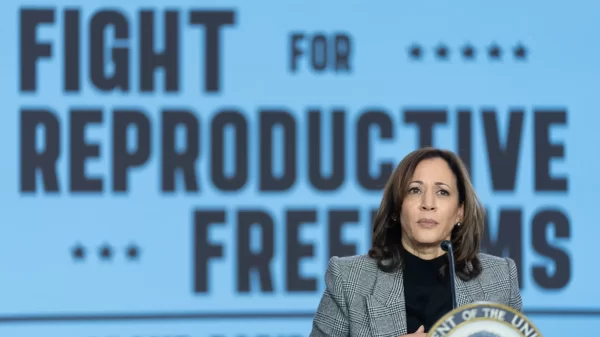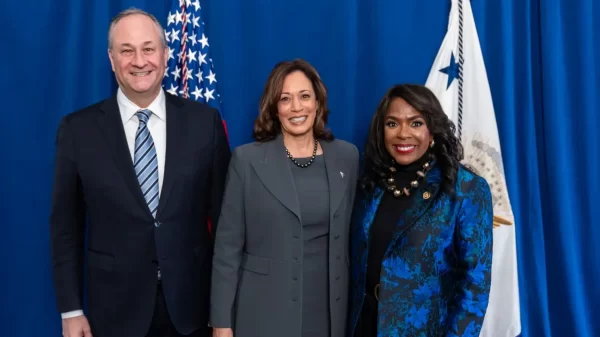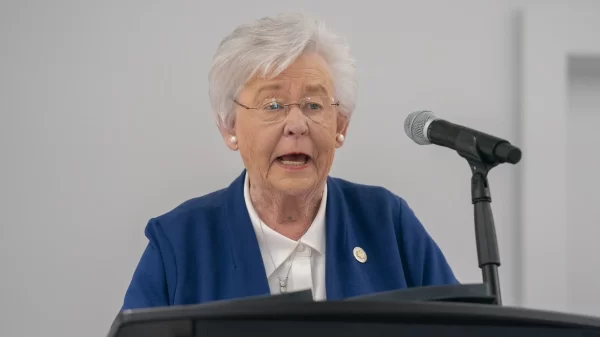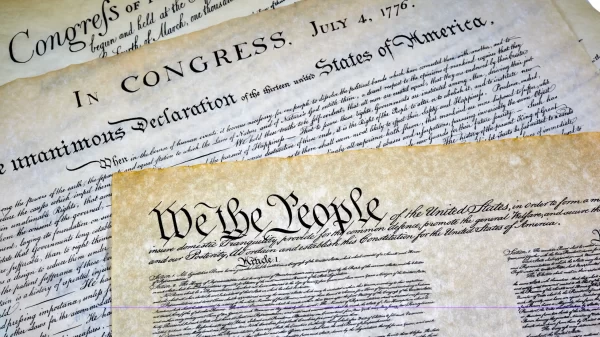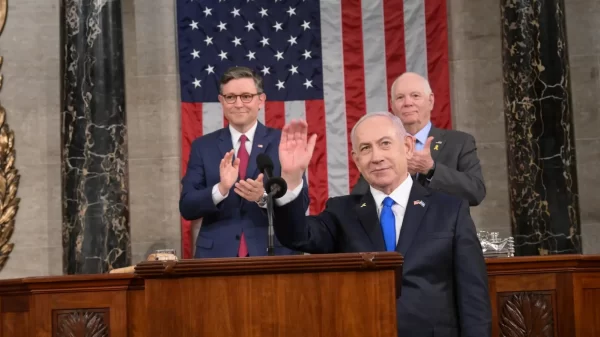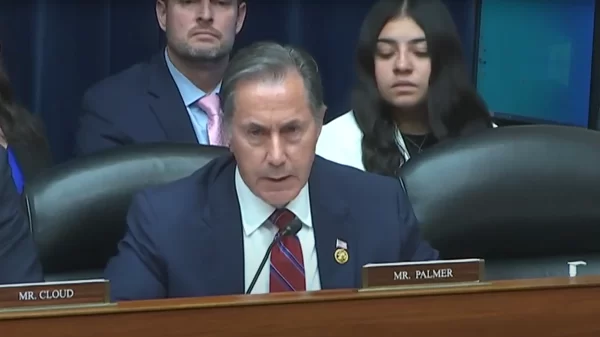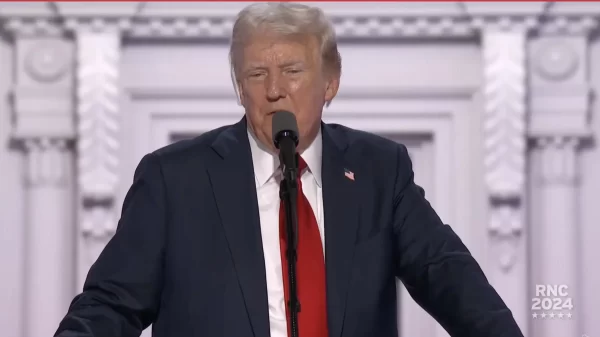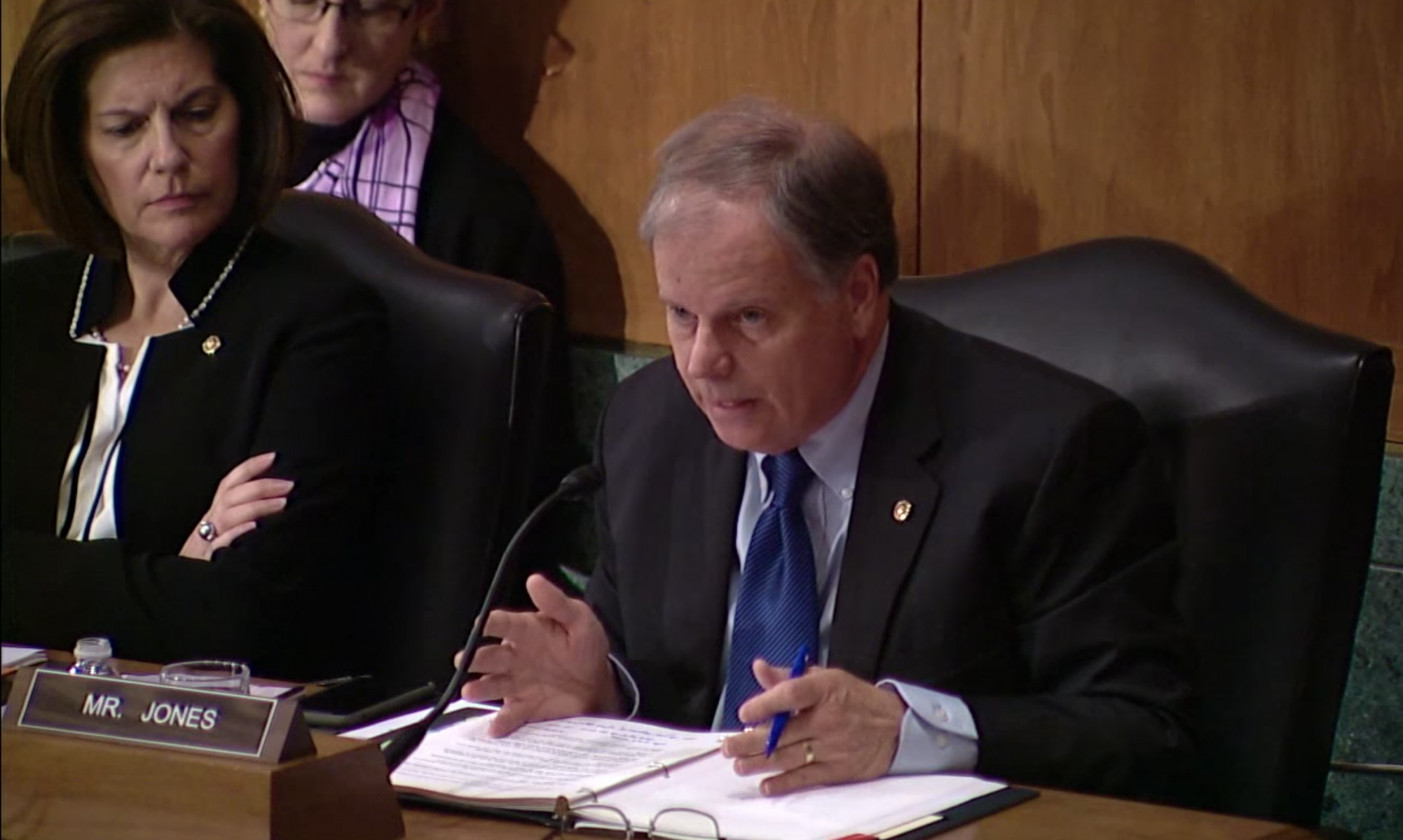Tuesday, U.S. Senator Doug Jones (D-Alabama) testified at a hearing held by the United States International Trade Commission (USITC) on the negative impacts recently imposed newsprint tariffs have had on Alabama’s newspapers.
Jones has advocated to stop to these tariffs, which are already hurting newspapers. In April, Jones wrote a letter to U.S. Department of Commerce Secretary Wilbur Ross calling for an end to the newsprint tariff. He has cosponsored bipartisan legislation to suspend the tariffs while the Commerce Department examines the impacts of the tariffs on the printing and publishing industry.
“This issue first came to my attention back in March, when Bo Bolton, publisher of the Monroe Journal in Monroeville, Alabama—home of Harper Lee—traveled all the way to Washington D.C. to meet with me and my team,” Sen. Jones testified. “Bo’s message was urgent and clear: newly implemented tariffs by the Department of Commerce threatened the livelihood of his small-town newspaper, and thousands of other small, community papers that serve as the lifeblood of their communities throughout this country.”
“I have had a regular stream of publishers visit with me sharing the exact same message, asking for any relief possible before they would have to start cutting their services and laying off what few staff they might have,” Jones continued. “The sources for domestically produced newsprint are quite scarce, requiring newspapers around the country to purchase their newsprint from Canadian suppliers. In other words, the domestic jobs that would be protected by these tariffs is relatively minuscule compared to the number of jobs in the United States that these tariffs threaten. But one domestic producer, NORPAC, which is owned by a New York hedge fund, filed a complaint with the Department of Commerce alleging Canadian newspaper suppliers were being subsidized by their government and thus able to sell below market value. As I understand is common practice, the Commerce Department levied preliminary tariffs of 6.53 percent in January. That jumped to an average of 22 percent in March, when the Canadian producer was found to be [selling] below the market price.”
“Here’s what I just don’t understand: why would this Administration levy these outrageous tariffs when our own newspaper publishers, logging industry, and paper suppliers do not support the decision?” Jones continued. It seems to me that the only thing being protected by this tariff is a small portion of a Wall Street hedge fund’s portfolio. It certainly isn’t protecting the 600,000 printing and publishing jobs across the country, including jobs at every newspaper in the state of Alabama.”
“The Decatur Daily is facing an increase of $450,000 over their 2017 costs, and they’ve eliminated 11 full-time positions already,” Jones said. “Aside from payroll, newsprint is their single largest expense. You’ll hear that refrain from many small papers. Samuel Martin, publisher of the Birmingham Times in Birmingham, Alabama, wrote to me saying that they are, “hanging on by our fingertips already to survive and things like these tariffs will be the difference on surviving for so many.””
Most newspapers and journals are in the process of migrating to the internet. The Alabama Political Reporter does not have an old fashioned print version so uses no newsprint whatsoever.
“While some big-named media outlets have found their footing in the digital age, that’s not the case for everyone,” Jones said. “For many in small towns in Alabama and across the country, folks still like to get their news from actual newspapers. They still like to read a paper front to back. Hold it in hand. They cut the coupons. They read the local events calendar. They learn about what their local officials are doing or, in some cases, not doing. Frankly, there are still far too many places where Americans still struggle to get access to broadband. These folks don’t have the option to go online to get their news. The digital model just doesn’t work there, at least not yet.”
“These small newspapers cover local news that wouldn’t make it into larger regional papers if they were to shut their doors. Local businesses lose perhaps their only outlet in which to reach their customers,” Sen. Jones testified. “The biggest losers in this fight ultimately will be the residents that rely on local newspapers to stay informed. So when I say that these papers are the lifeblood of communities, it is not an exaggeration. It’s a fact. That’s why I have been so deeply concerned about this tariff. If it’s not rolled back, it will present and existential threat to local newspapers that are already strapped. “
“It is why I left duties on Capitol Hill this afternoon to come here today to urge you to reconsider this tariff,” Jones said. “Instead, consider the significant impact it has already had on these small American businesses. I hope you take to heart the urgent calls you are hearing today and make the right decision to eliminate these tariffs and to protect this industry and valuable the service that it provides to all of us.”
Forbes Media Chairman Steve Forbes wrote in The Wall Street Journal that “Since March a tariff of up to 30 percent on Canadian uncoated paper has raised the price of newsprint, making it difficult for cash-strapped newspapers to circulate their work. As if limiting economic freedom weren’t enough, the administration is also undermining Americans’ freedom of expression with this needless tax on journalism.”
North Pacific Paper Company plans to hire 50 new full- and part-time employees, the company announced May 2. The company, owned by the New York hedge fund One Rock Capital Partners, also announced the limited restart of operations for one of its paper machines, idled this past year.
The Longview, Washington-based company attributed the moves to “the U.S. uncoated groundwood papers industry starting to see a level playing field against unfairly traded imports.”
On May 2 North Pacific Paper Company (Norpac) which filed the trade complaint last fall has hired 50 more employees and is reopening a third machine at their Longview, Washington facility which they had shut down last year.
“After years of unfair, demoralizing market conditions and the associated difficult decisions that were required to survive, we have worked with our employees to test and create a system that can respond rapidly to the dynamic needs of the customers we serve. As more clarity regarding the impacts of competing on a level playing field become clear we will further improve our organizational capability,” said CEO Craig Anneberg in a news release.
Doug Jones was elected to the Senate in a special election on December 12.
(Original reporting by newsandtech.com contributed to this report.)


